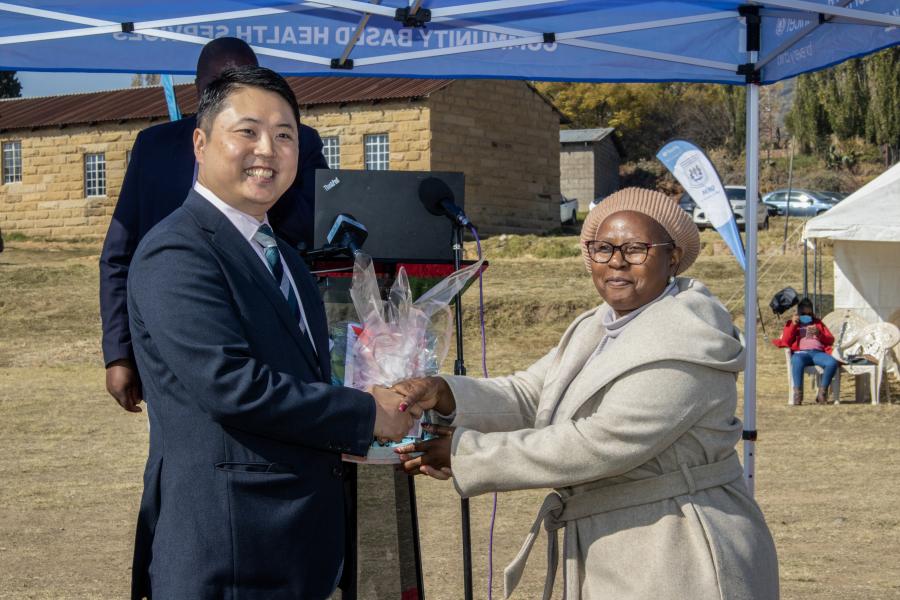The Government of Japan, in collaboration with the Government of Lesotho and UNICEF Unveil Groundbreaking Community Health Information Systems
08 July 2024
Maseru, 27th June 2024 –The Government of Japan, in collaboration with the Government of Lesotho and UNICEF, launched the new Community Health Information Systems initiative in an event that was held at Lesotho Defence Force Clinic in Maseru. The event was graced by the presence of The Hon Deputy Prime Minister of Lesotho, Hon Minister of Health, the Second Secretary of the Embassy of Japan,UNICEF Representative, UNDP Representative, and Heads of the Business community.

The project aims to enhance information systems by leveraging the essential role of community health workers in data collection and healthcare monitoring, including neighborhood-level immunization campaigns.
The two community health information systems introduced are the Georeferenced Community Health Worker Master List and the Community Health Information System (Bophelo Ka Mosebeletsi, BKM) which leverages on a previously developed UNDP and ECONET tool. The master list stores and manages data on the employment history of Village Health Workers, facilitating strategic planning, training, deployment, payment, supply supervision, and monitoring. Further, the Bophelo Ka Mosebeletsi (BKM) system will assist Village Health Workers in collecting, storing, and managing service delivery data about the clients they serve, ensuring appropriate security standards for protecting personal patient information.
The COVID-19 pandemic highlighted the urgent need to standardize and digitalize surveillance and administrative data from communities. Previously, data captured by village healthcare workers were not consistently integrated into the national health management information system, hindering the Ministry of Health's ability to monitor and provide feedback on the COVID-19 vaccination rollout and maintain essential health services during the pandemic. The launch of the Community Health Worker Master List will go a long way in ensuring that surveillance and administrative data collected by Village Health Workers is digitalized and incorporated into the Health Management Information System (HMIS), which will in turn enhance decision-making and planning processes for primary healthcare services including vaccination, nutrition and other maternal neonatal and child health services.
The Government of Japan has supported the Government of Lesotho with a total investment of USD 2.8 million to bolster Lesotho's emergency preparedness and response to the COVID-19 pandemic and strengthen community and health systems.
UNICEF Lesotho Representative Mr. Deepak Bhaskaran expressed gratitude for Japan's generous support, underscoring the positive impact on Basotho children's health and well-being. “The Government of Japan has been supporting UNICEF to mitigate the effects of the COVID-19 pandemic on Basotho children’s health and well-being and to strengthen community and health systems to prepare and respond to public health emergencies in Lesotho.”
Mr. Takuya Januma, the Second Secretary of the Embassy of Japan, on behalf of the Ambassador of Japan, H.E. Shigeru Ushio, reiterated Japan's commitment to the partnership. “Japan has been deeply committed to contributing to Lesotho’s priority areas such as health, education, agriculture, food security, climate change, border, and migration management through technical assistance, grant aid, and assistance for Grassroots Human Security projects. I look forward to further promoting our bilateral relations and contributing to the development of Lesotho.”
END
About UNICEF
UNICEF works in some of the world’s toughest places, to reach the world’s most disadvantaged children. Across more than 190 countries and territories, we work for every child, everywhere, to build a better world for everyone.
For more information about UNICEF and its work for children:
Visit www.unicef.org and follow us on X (Twitter), Facebook, Instagram and YouTube







